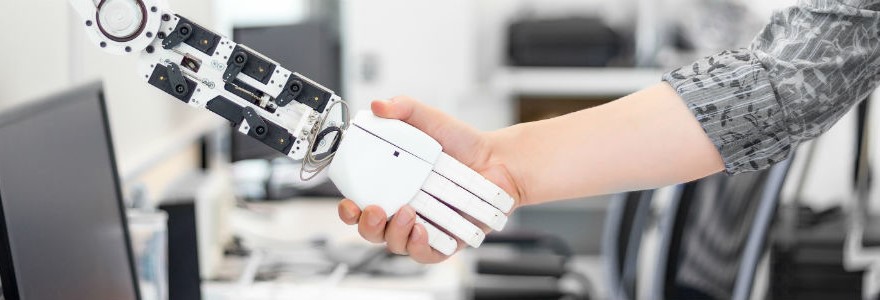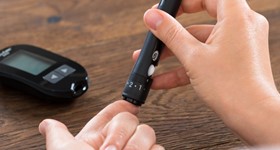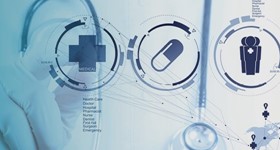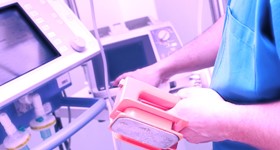How would the convergence of AI and IoT within pharma innovate the healthcare sector?

Technology has made itself indispensable across various industries and the healthcare sector is no exception. From the revolutionary wave of Industry 4.0, it hopes to improve the manufacturing of drugs and productivity of patient care. The convergence of Artificial Intelligence (AI) along with the Internet of Things (IoT) within the industry would assist this and are likely to open the industry to a new set of services and solution offerings. This can prevent Singapore from being a laggard in this increasingly complex sector in the near future. However, this is also largely dependent on the ability to combat privacy and safety threats that are tied to AI and IoT. Above all, it is key to also hire specialised IT and regulatory talent for these increasingly niche roles within the pharmaceutical sector.
Below are examples on the convergence of AI and IoT within pharma that has helped to innovate the healthcare sector and reasons this industry should continue to take advantage of this convergence.
Automated information processing with data analytics
There has been an escalating need for an uninterrupted supply of drugs globally with new discoveries of diseases and persisting chronic illnesses on the rise. This however, can only be achieved by the improvement of efficiencies within each function in the pharmaceutical industry, especially within manufacturing.
Leading firms like Pfizer and Merck are already implementing operational excellence models to reduce the cycle time and variable expenses whilst increasing yield. Hence, automation in manufacturing would bring in great value and is likely to create economies of scale in the long-term.
To complement automation are IoT devices which can allow data scientists to collect real-time data. The combination of these devices and machinery used within the manufacturing of complex drugs ensure that errors such as mislabelling of drugs are prevented. Such dynamic tools can also ‘learn’ from its mistakes to improve its deep-learning abilities unlike static rule-based systems that do not have features of continuous ongoing learning.
For instance, pressure sensors are commonly used in industrial automation to measure the pressure of gas or liquid; they are also used to determine speed, altitude, and weather condition. This type of sensors are widely used in environments such as pharmaceutical manufacturing and chemical processing. With AI and IoT devices, cycle time to measure chemicals can be significantly reduced while accuracy is maintained at optimum levels.
A*STAR and NUS have also signed a MoU with leading pharmaceutical companies - GlaxoSmithKline (GSK), Pfizer, and Merck Sharp & Dohme (MSD) to establish the Pharma Innovation Programme Singapore (PIPS). The focus areas for PIPS include continuous manufacturing, bio-catalysis, process analytical technology, advanced process control, and enhanced pharmaceutical operations.
Smart factories to produce bespoke medication
Manufacturing factories within the pharmaceutical industry are gearing themselves to revolutionise their operations and production processes with AI. This includes the adoption of automation technology in manufacturing and quality control processes through AI systems and the use of robotics. More often than not, these new technologies can be used in areas which are hazardous for humans. An example includes 3D printing of tablets which emits ultra-fine particles of which some are irritants and chronic hazards to humans. However, AI eliminates these issues within the manufacturing process and encourage the combination of multiple drugs to suit the varying needs of patients. ROHM Semiconductor and A*STAR’s IME are also developing an AI chip that would boost productivity by speeding up predictive maintenance in smart factories.
A*STAR’s new 'Model Factories’ initiative is another example of how the sector can now simulate production environments. Companies can use this to experiment and learn new manufacturing technologies, allowing SMEs to test new technologies with the help of public sector researchers before adopting it in their factories.
One of the most significant contribution of IoT is its success in connecting the physical and virtual world that is full of useful data. AI enables us to better navigate this data and ultimately, predict the future. With an agile healthcare environment supported by AI, repetitive and manual tasks can be eliminated. Flexible and coordinated communication will also be possible in real time for prompt immediate action.
Additionally, drug development processes would be accelerated to develop a pipeline of ground-breaking treatments for critical disease areas such as cancer and cardiovascular diseases. With data analytics, firms can harness big data in precision medication and innovation especially within immunotherapy and drug development.
Is Safety, Security and Compliance neglected?
With new health technologies are new vulnerabilities such as pharma cybersecurity. Security implications of new technologies that are tested and eventually adopted must be thoroughly evaluated. Complying with Good Manufacturing Practice (GMP) and its strict requirements, the established system ensures the production of quality products. GMP compliance is thus critical because deviations can be fatal to customers or patients.
Nevertheless, training programs to upskill and stay up-to-date with regulatory compliance schemes must remain as top priority for individuals looking to secure a career in the industry. With the rise of the gig economy that is infiltrating the medical sector, pharma IT and cybersecurity contract roles have hence risen in the market. This enables talent with greater flexibility to upgrade themselves through IT-related courses on a part-time basis or with job openings as researchers, engineers, technical support and compliance staff.
Specialised knowledge and skills within highly sophisticated manufacturing technologies will persist, along with cybersecurity specialists that can ensure the sustainability of its new and improved operations.
As Singapore gradually evolves towards a smarter nation, we need to be future-ready and be adaptable as technology constitutes every aspect of our daily lives. Do drop me a comment to share your thoughts on the impending convergence of AI, IoT and Pharma and I would be more than happy to have an open discussion. To stay up-to-date with the latest trends in the pharmaceutical market, do follow us on LinkedIn for more industry related insights.




